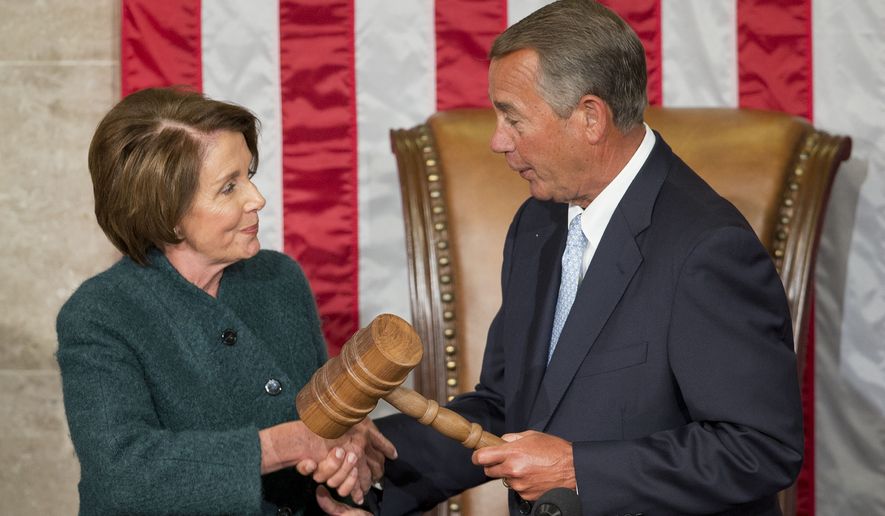Full payments for doctors who treat Medicare patients run out on April 1, but the Obama administration has a two-week grace period before it would actually have to begin cutting payments, giving Congress a short window next month to fix the problem before earning the ire of physicians nationwide.
The House has acted, passing a bill that would permanently ensure full payments. But senators skipped town early Friday morning for a two-week spring break without taking action on the bill, leaving the doctors in limbo.
“Unfortunately, there really isn’t much we can do if things go beyond the 14th,” the American Medical Association said in a statement to The Washington Times. “The Senate has to pass the bill by then or the 21-percent cut will go into effect.”
At stake is what’s known in Capitol-speak as the “doc fix” — a frequent patch to a 1997 law that was supposed to rein in Medicare costs by cutting payments to doctors if they grew too quickly. The cuts have never been allowed to take effect though, as Congress feared doctors would instead dump Medicare patients, causing a health crisis among seniors.
After more than a decade of patches, House Speaker John A. Boehner and Minority Leader Nancy Pelosi reached a compromise for a permanent fix that does away with the cuts in exchange for charging wealthy seniors more for some of their Medicare coverage.
The bill would also renew the Children’s Health Insurance Program and extend some parts of Obamacare, including community health centers.
But conservatives in the Senate said it was a bad deal that added too much spending without winning enough reforms to Medicare, and liberals said the children’s health program wasn’t extended long enough. Meanwhile, pro-choice groups urged liberals to oppose the deal because it continues a restriction on federal funding for abortion.
Eager to begin their vacation, and stymied by the dissent, the Senate fled, though leaders said they expect the Obama administration’s Centers for Medicare and Medicaid Services to be able to handle the situation until Congress returns April 13.
“They can handle a two-week gap,” Senate Majority Leader Mitch McConnell, Kentucky Republican, said during Friday’s wee hours. “We’ll turn to this legislation very quickly when we get back. I think there’s every reason to believe it’s going to pass the Senate by a very large majority.”
The bill cleared the House 392-37 on Thursday.
A Senate aide said the fix would be retroactive, which would cover claims submitted in the first two weeks of April.
In a statement Friday, the Centers for Medicare and Medicaid Services said it is “assessing what’s possible and will do our best to limit the impact for Medicare beneficiaries and providers.”
The situation is not unprecedented. In 2010 Congress failed three times to override Medicare pay cuts before the prior patch expired, the Congressional Research Service said in a report last week.
Lawmakers moved quickly enough in the first two instances to avoid affecting doctors because of the CMS delay in processing claims, but the third override had to be retroactive for 25 days, researchers said.
The Congressional Budget Office estimated the legislation will cost $214 billion over the coming decade, with about $140 billion tacked onto the deficit, and the rest covered by wealthier Medicare recipients and providers such as hospitals.
The American Hospital Association, which did not like seeing its members’ rates used as an offset to pay for the package, nonetheless encouraged Congress to finish the job.
“We are hopeful that the Senate [will] take up [the bill] when they return from recess and quickly pass it to send to the president for his signature,” AHA spokeswoman Marie Watteau said.
• Tom Howell Jr. can be reached at thowell@washingtontimes.com.




Please read our comment policy before commenting.